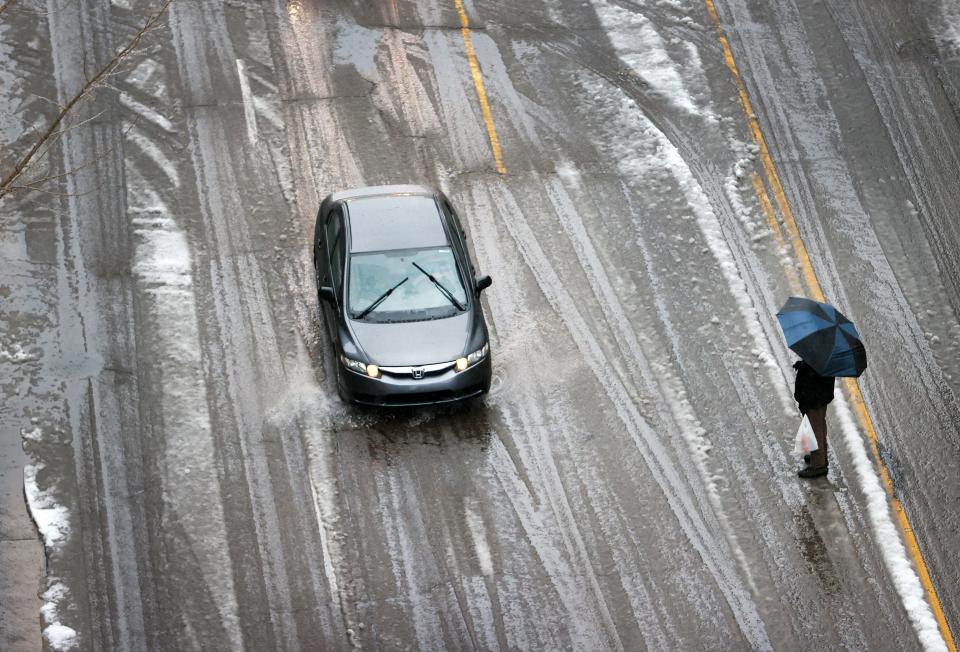How do I keep my pipes from freezing? Tips to keep water going during sub-zero temperatures
Protecting homes from icy temperatures is the goal for many Tennesseans this coming week as subzero wind chills head our direction.
Rather than spending thousands of dollars to try and fix pipes that might burst in your home next week, just take a few minutes to go through a checklist for home safety. Your kitchen may look silly with random cabinets open under the sink, but it will be worth it to not have to possibly replace any pipes after the freeze.
Here are ways to keep your pipes from freezing during the chilly temperatures next week.
How do I keep my pipes from freezing? Tips to keep water flowing
It is recommended by State Farm to take time to make sure pipes don't freeze by following these steps:
Insulate pipes
Use heat tape or heat cables
Seal leaks in the home via windows or cracks
Secure outdoor faucets by draining and taking in hoses and sprinklers
Let both hot and cold water drip indoors to keep water flowing
Adjust the thermostat to stay warm overnight
Open cabinet doors to let air hit indoor pipes
Keep the garage door closed if exposed pipes are inside it
What home temperature keeps pipes from freezing?
Homes should be kept at a minimum of 55 degrees to keep pipes from freezing. This is the recommended temperature for people who are out of town.

At what temperature do pipes freeze?
Technically pipes can freeze in 32-degree weather, but most will not freeze until under 20 degrees. The longer the temperature remains under 20, the greater the chance of freezing.
Pipes can fully freeze within six hours if the temperatures are cold enough.
What pipes are most likely to freeze?
Pipes that are not insulted and in open, unheated spaces are the most likely to freeze. These can be pipes in attics, basements or garages. As there is no warm air flowing to these pipes and they are exposed, they are at a greater risk.
What to do if pipes freeze?
State Farm also recommends taking these steps if your pipes do end up freezing because of the near-zero temperatures:
Shut off the water supply
Open faucets
Use a hair dryer or a space heater to warm pipes
Turn up the heat in the house
Do not use an open flame to warm pipes
Do not pour hot water down the drain to warm pipes
Call a plumber if needed
This article originally appeared on Memphis Commercial Appeal: Frozen pipes? What to do when facing freezing temperatures

